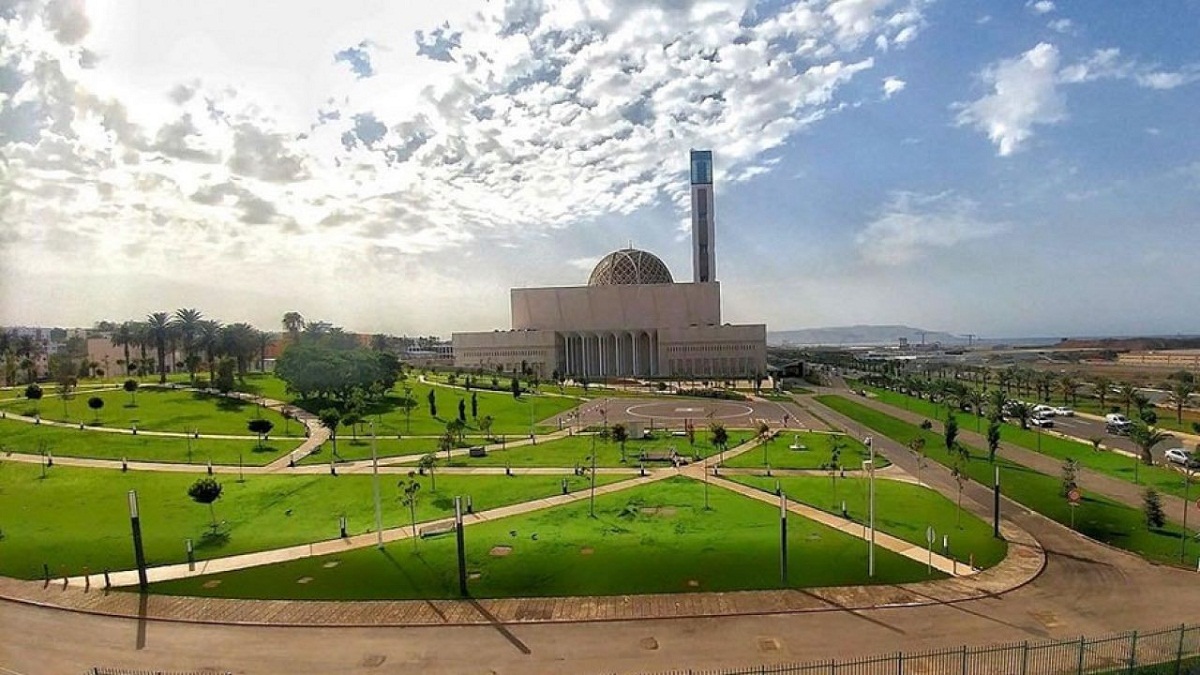Algeria is a country located in North Africa, occupying a significant area of the northern region of the African continent. It is bordered by the Mediterranean Sea to the north, Tunisia and Libya to the east, Niger and Mali to the south, and Morocco, Western Sahara, and Mauritania to the west. Its capital city is Algiers. In this article, we will provide information about Algeria that you should know.
Algeria is a large country, with an area of 2,381,741 square kilometers, making it the 10th largest country in the world. It has a rich history and diverse culture that can be explored by visiting various Algerian cities and getting to know its friendly and hospitable people.
Algerian culture is rich and diverse, with roots that trace back deep into history. Each region, city, and oasis forms a unique cultural space that is worth discovering and enjoying.
There are 8 sites in Algeria that are classified as UNESCO World Heritage
- Beni Hammad Fort (1980) in the M’Sila Province.
- Djémila (1982) in the Sétif Province.
- Tassili n’Ajjer (1982) in the Algerian Sahara.
- Timgad (1982) in the Batna Province.
- Tipasa (1982) in the Tipasa Province.
- M’zab Valley (1982) in the Ghardaïa Province.
- Casbah of Algiers (1992) in the Algiers Province.
General Information about Algeria
- Population: 44.18 million (2021).
- Capital: Algiers.
- Official languages: Arabic and Tamazight (Berber).
- Religion: Islam is the main and official religion in Algeria. Islamic religion plays a significant role in shaping Algerian culture, influencing the lifestyle, values, and traditions of its people. Mosques and religious centers can be found throughout the country, and the Islamic holy month of Ramadan and other Islamic holidays are celebrated with special significance.
- Currency: Algerian Dinar.
- Political system: People’s Democratic Republic.
- Head of state: Abdelmadjid Tebboune (elected on December 12, 2019).
Algeria’s Terrain and Geography
Algeria’s terrain is diverse and vast due to its unique geographic location in North Africa. The country boasts a remarkable natural diversity, including mountains, deserts, plains, and long coastlines along the Mediterranean Sea.
Here is an overview of Algeria’s terrain:
- Northern Coast: Stretches along the Mediterranean coast, characterized by stunning landscapes and beautiful beaches.
- Atlas Mountains: Mountain ranges extend across the country from northwest to southeast. These mountains include the Aurès Mountains, the Djurdjura Mountains, and the Tell Atlas, which are snow-capped during winter.
- The Sahara Desert: Occupies a large part of southern Algeria and is one of the most beautiful and vast deserts in the world.
- Plateaus: The High Plateaus lie between the Atlas Mountains and the Sahara, forming a distinctive landscape.
- Lowlands and Wadis: Low areas and valleys can be found in various parts of the country, such as the M’zab Valley and the Souf Valley.
- Islands: Algeria also includes islands in the Mediterranean Sea, such as Rachgoun Island and Arzew Island.
- Lakes and Rivers: Algeria is known for its beautiful lakes and important rivers, such as Lake Oum Lahnèchei, attracting camping and adventure enthusiasts.
Climate in Algeria
Algeria’s climate offers a diverse experience to visitors and tourists. The country has three main climate types: Mediterranean coastal regions, cold mountainous regions, and hot desert regions. This allows both local and foreign tourists to experience a variety of weather conditions and activities during their visit to Algeria.
The diverse climate of Algeria is influenced by its wide geographic location, situated between the Mediterranean Sea and the vast Sahara Desert.
Music in Algeria
Algerian music encompasses various diverse styles, such as Andalusian music, Chaabi music, Rai, Kabyle music, Gnawa music, Shawiya music, Staifi music, Bedouin and Sahrawi music, Targui music, and the recent genre of Zenkaoui music.
In December 2022, UNESCO inscribed Algerian Rai music on the list of Intangible Cultural Heritage of Humanity.
The music is known for its lyrical diversity and linguistic references, which are a mixture of Classical Arabic, Algerian Colloquial Arabic, French, and Tamazight, in addition to the local dialects like Shawiya, Tuareg, Sahrawi, and Staifi, among others.
Algerian Cuisine
Algerian cuisine is considered the best in Africa and the Arab world, according to the specialized website “Taste Atlas,” where it ranked 34th worldwide in 2022. It benefits from the cultural diversity and vastness of Algeria, which has allowed each region to develop its delicious and appetizing dishes.
Some of the famous and delectable dishes in Algeria that locals and tourists should try include:
- Couscous: Algerian couscous is a symbol of the country’s cuisine and one of the main popular dishes. It is prepared with fine semolina and cooked in a special pot (couscoussier) with meat, vegetables, and spices. It is usually served on special occasions, bringing families and friends together.
- Rechta: Rechta is one of the most popular dishes in Algeria, ranking seventh globally among the best dishes for 50 countries, i.e., the best in the world outside of Asia.
- Other Famous Algerian Dishes: Other renowned Algerian dishes include Frik Soup, Harira, Mahjouba, Chakhchoukha, Baghrir, Loubia, and Tagine Zitoun.
- Traditional Algerian Sweets: “Makroud El Louz” (Almond Maamoul) ranked fourth globally and first in the Arab and African regions according to Taste Atlas, which included a list of the 50 best sweets in the world.
Algeria’s culinary offerings are a delightful representation of its cultural diversity, and trying the local dishes is a must for anyone visiting the country.
